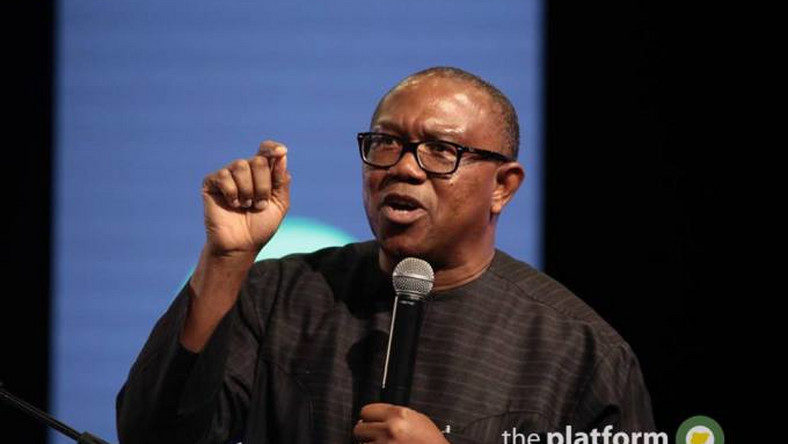The former Governor of Anambra State, Peter Obi, has said that no government exists without securing the lives and properties of the citizens.
Mr. Obi stated this on Tuesday while speaking at The Platform, a programme by the Covenant Christian Centre to mark Nigeria’s 59th Independence Day.
He said Nigeria needs to do something very quickly and drastically on its present security situation.
“The number one job of any government in any society is to provide security for lives and properties. If you cannot do that then the government does not exist.”
Mr Obi explained that one of the major things needed in the country to grow its economy is an investment but questioned how secured the nation is for investors.
He noted that security is a fundamental factor that attracts foreign investors.
According to Mr Obi, there are major factors affecting the growth of the nation which is security, education and Our economy (with emphasis on solving the current underemployment and unemployment situation)
He said Nigeria is borrowing and not impacting on the development of the country.
“We are borrowing but it is not impacting our growth. One of the crises we face as a country is the high level of our debt accumulation.
“Today Nigeria’s debt is about 28 trillion dollars. Our debt to GDP is about 25%. Singapore’s debt to GDP is 100%. In Singapore, you can only borrow for capital projects that will pay itself back”.
“Nigeria’s unemployment rate is over 25%, global life expectancy is 75 years, while for Nigeria, it is 54 years. Nigeria is the only country where you have a low literacy rate of 51% and this is caused by the nonchalant attitude towards our educational system”.
Mr Obi further stated that Nigeria is the home of the highest number of poor people on Earth, and in every minute, six Nigerians fall into poverty.
He said investors need peace to enjoy their dividends. Nobody is going to invest in an unsecured place no matter how huge the profit seems.
“Our ten years budget in education is not up to South African’s one year budget in education
Education
A growing economy invests at least 4% to 5% of the GDP in education.
Education is not an expense, it is an investment. The more you invest in education, the better your society.
The Chinese annual budget for education is 580 billion dollars.
In the last 10 years, Nigeria has budgeted about $4.5bn for education, less than the amount South Africa spends annually on its education.
If the money spent on subsidy was invested in education and health, it would have impacted positively in our economy at large.
Unemployment
Talks about the economy is incomplete without addressing the issue of employment and unemployment.
Unemployment and under-employment are the greatest contributors to the challenges to the growth of our economy. When people don’t have jobs, we will have terrorists and criminals in society.












